Aliena deploys compact and fuel-efficient satellite engine into space
Saturday, 15 January 2022 13:09 Aliena, a tech spin-off from Nanyang Technological University, Singapore (NTU Singapore), has been deployed into space a nanosatellite fitted with a fuel-efficient engine it has developed. The nanosatellite was sent from the SpaceX Falcon 9's Transporter-3 mission which launched from Cape Canaveral Space Force Station, Florida, US.
The satellite's engine, a Hall effect thruster, a type of
Aliena, a tech spin-off from Nanyang Technological University, Singapore (NTU Singapore), has been deployed into space a nanosatellite fitted with a fuel-efficient engine it has developed. The nanosatellite was sent from the SpaceX Falcon 9's Transporter-3 mission which launched from Cape Canaveral Space Force Station, Florida, US.
The satellite's engine, a Hall effect thruster, a type of Alpha Blue Ocean launches NFT concept via Space X Transporter 3 mission
Saturday, 15 January 2022 13:09 Alpha Blue Ocean, the family office founded by Pierre Vannineuse and financial partner of WISeKey, announces the new technological breakthrough of the Swiss group led by Carlos Creus Moreira. On January 13, 2022, WISeKey launched the audacious project to generate the first NFT from space...
On January 13, 2021, WISeKey launched its first WISeSat pico satellite via SpaceX's Falcon 9 rocket
Alpha Blue Ocean, the family office founded by Pierre Vannineuse and financial partner of WISeKey, announces the new technological breakthrough of the Swiss group led by Carlos Creus Moreira. On January 13, 2022, WISeKey launched the audacious project to generate the first NFT from space...
On January 13, 2021, WISeKey launched its first WISeSat pico satellite via SpaceX's Falcon 9 rocket $10M elevates UArizona hypersonics facilities to national prominence
Saturday, 15 January 2022 13:09 University of Arizona aerospace and mechanical engineering researchers have received $3.5 million in funding from the state of Arizona's investment in the New Economy Initiative and $6.5 million in federal support through the Department of Defense's Test Resource Management Center to upgrade hypersonic facilities and related research infrastructure.
The funding positions the university as
University of Arizona aerospace and mechanical engineering researchers have received $3.5 million in funding from the state of Arizona's investment in the New Economy Initiative and $6.5 million in federal support through the Department of Defense's Test Resource Management Center to upgrade hypersonic facilities and related research infrastructure.
The funding positions the university as Loft Orbital signs with Airbus to procure 15 Arrow satellite platforms
Saturday, 15 January 2022 13:09 Airbus has been contracted to supply space start-up Loft Orbital with more than fifteen satellite platforms derived from the Airbus Arrow platform. Arrow is the foundational satellite platform of the OneWeb constellation. There are 394 Airbus Arrow platforms in orbit for the OneWeb constellation and a further 254 are being produced to complete the 648 spacecraft required by OneWeb. With this acq
Airbus has been contracted to supply space start-up Loft Orbital with more than fifteen satellite platforms derived from the Airbus Arrow platform. Arrow is the foundational satellite platform of the OneWeb constellation. There are 394 Airbus Arrow platforms in orbit for the OneWeb constellation and a further 254 are being produced to complete the 648 spacecraft required by OneWeb. With this acq Virgin Orbit mission success brings UK satellite launch one step closer
Saturday, 15 January 2022 13:09 Satellite launch from Spaceport Cornwall is a step closer following Virgin Orbit's successful 'Above the Clouds' mission in the US.
The UK Space Agency welcomes the news that Virgin Orbit successfully completed its third mission from California on Thursday 13 January, launching several satellites into orbit from beneath the wing of a 747.
The UK Space Agency and Cornwall Council are
Satellite launch from Spaceport Cornwall is a step closer following Virgin Orbit's successful 'Above the Clouds' mission in the US.
The UK Space Agency welcomes the news that Virgin Orbit successfully completed its third mission from California on Thursday 13 January, launching several satellites into orbit from beneath the wing of a 747.
The UK Space Agency and Cornwall Council are OMEGA joins ClearSpace to clean up space
Saturday, 15 January 2022 13:09 ClearSpace SA is working to rid space of dangerous debris comprising left-over rockets and defunct satellites. Now, Swiss watchmaker OMEGA, manufacturer of the first watch worn on the Moon, is joining with the Lausanne start-up as the first partner for the upcoming debris removal mission.
In 2019, ClearSpace was selected by the European Space Agency (ESA) to fly the ClearSpace-1 mission to
ClearSpace SA is working to rid space of dangerous debris comprising left-over rockets and defunct satellites. Now, Swiss watchmaker OMEGA, manufacturer of the first watch worn on the Moon, is joining with the Lausanne start-up as the first partner for the upcoming debris removal mission.
In 2019, ClearSpace was selected by the European Space Agency (ESA) to fly the ClearSpace-1 mission to Report: Nuclear propulsion would help military satellites maneuver out of harm’s way
Friday, 14 January 2022 22:10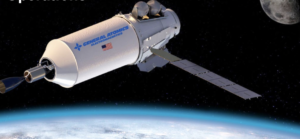
Michael Leahy, director of DARPA’s Tactical Technology Office, said nuclear propulsion could give the U.S. military an advantage over enemies by making satellites more maneuverable and less vulnerable to attack.
Airbus books Loft Orbital order for Florida satellite factory
Friday, 14 January 2022 15:44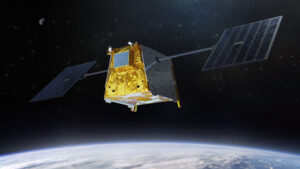
Condosat operator Loft Orbital has ordered more than 15 satellite buses from Airbus in a deal announced Jan. 14 that calls for building the initial OneWeb-derived platforms in France before shifting serial production to Florida.
Startup successfully deploys compact and fuel-efficient satellite engine into space
Friday, 14 January 2022 15:09
Aliena, a tech spin-off from Nanyang Technological University, Singapore (NTU Singapore), has today deployed into space a nanosatellite fitted with a fuel-efficient engine it has developed. The nanosatellite was sent from the SpaceX Falcon 9's Transporter-3 mission which launched from Cape Canaveral Space Force Station, Florida, US.
The satellite's engine, a Hall effect thruster, a type of ion thruster in which ions from the propellant are accelerated by an electric field, was invented and developed by Aliena.
Being in space destroys more red blood cells
Friday, 14 January 2022 15:07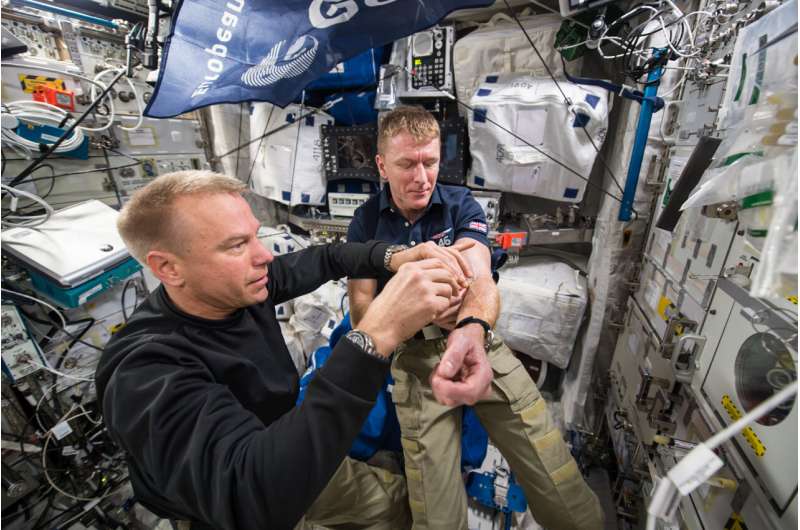
A world-first study has revealed how space travel can cause lower red blood cell counts, known as space anemia. Analysis of 14 astronauts showed their bodies destroyed 54 percent more red blood cells in space than they normally would on Earth, according to a study published in Nature Medicine.
"Space anemia has consistently been reported when astronauts returned to Earth since the first space missions, but we didn't know why," said lead author Dr. Guy Trudel, a rehabilitation physician and researcher at The Ottawa Hospital and professor at the University of Ottawa. "Our study shows that upon arriving in space, more red blood cells are destroyed, and this continues for the entire duration of the astronaut's mission."
Before this study, space anemia was thought to be a quick adaptation to fluids shifting into the astronaut's upper body when they first arrived in space.
Scientists turn back time to track methane emissions on Mars
Friday, 14 January 2022 13:52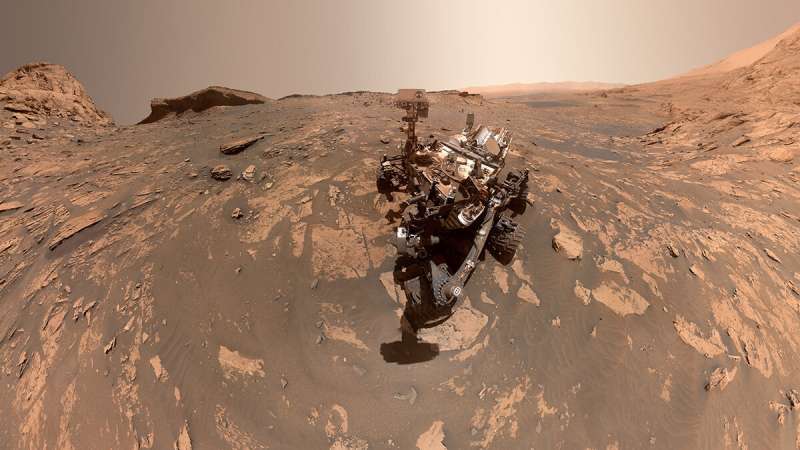
NASA's Curiosity rover landed on Mars in August 2012, and its investigations revealed that Mars was once a potentially habitable planet. One of Curiosity's most exciting observations has been periodic, unusually high abundances of methane in Mars's atmosphere. Over the past seven years, Curiosity has established a background signal of methane of about 0.41 part per billion by volume (ppbv), and these periodic spikes can increase atmospheric methane to as much as 21 ppbv.
Luo et al. note that these methane spikes could "have profound implications for geology and astrobiology." On Earth, almost all methane emissions have biological origins, from cow flatulence to the decay of plant material.
Week in images: 10 - 14 January 2022
Friday, 14 January 2022 13:29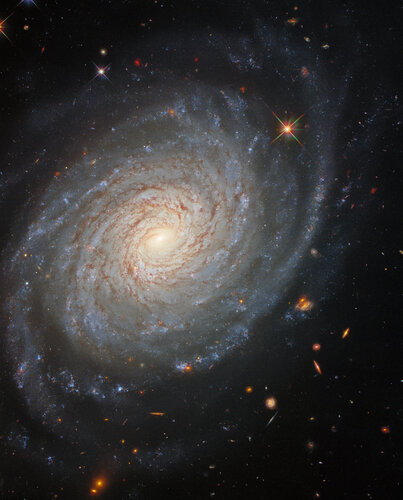
Week in images: 10 - 14 January 2022
Discover our week through the lens
SpaceX launches 44 SuperDove satellites for Planet Labs
Friday, 14 January 2022 12:23 Planet Labs reports the successful launch of its 4x Flock, consisting of 44 SuperDove satellites, into orbit on a SpaceX Falcon 9 rocket. The company has established contact with all of the SuperDove satellites, many within two minutes of the final deployment, upholding Planet's record of successfully connecting with 100% of all Planet satellites launched.
These 44 satellites will join Pla
Planet Labs reports the successful launch of its 4x Flock, consisting of 44 SuperDove satellites, into orbit on a SpaceX Falcon 9 rocket. The company has established contact with all of the SuperDove satellites, many within two minutes of the final deployment, upholding Planet's record of successfully connecting with 100% of all Planet satellites launched.
These 44 satellites will join Pla A second successful launch for SpaceCloud into space
Friday, 14 January 2022 12:23 SpaceCloud once again headed into orbit as a part of D-Orbit's ION Satellite Carrier onboard SpaceX's Transporter-3 mission that was launched January 13th from Cape Canaveral, Florida. The mission aims to verify 17 apps, uploading of new ones, and support the on-orbit testing of a hyperspectral camera.
On this mission SpaceCloud hosts 17 evolved applications, and we are now having the abil
SpaceCloud once again headed into orbit as a part of D-Orbit's ION Satellite Carrier onboard SpaceX's Transporter-3 mission that was launched January 13th from Cape Canaveral, Florida. The mission aims to verify 17 apps, uploading of new ones, and support the on-orbit testing of a hyperspectral camera.
On this mission SpaceCloud hosts 17 evolved applications, and we are now having the abil Update on Africa's 1st Satellite constellation built by CPUT
Friday, 14 January 2022 12:23 The Marine Domain Awareness Satellites (MDASat) have already started successfully transmitting data after they were launched aboard US aerospace company SpaceX's Falcon 9 rocket yesterday. The mission carried a total of 105 spacecraft, including CubeSats, microsats, PocketQubes and orbital transfer vehicles.
CPUT Vice-Chancellor Prof Chris Nhlapo congratulated engineers from the university
The Marine Domain Awareness Satellites (MDASat) have already started successfully transmitting data after they were launched aboard US aerospace company SpaceX's Falcon 9 rocket yesterday. The mission carried a total of 105 spacecraft, including CubeSats, microsats, PocketQubes and orbital transfer vehicles.
CPUT Vice-Chancellor Prof Chris Nhlapo congratulated engineers from the university 
